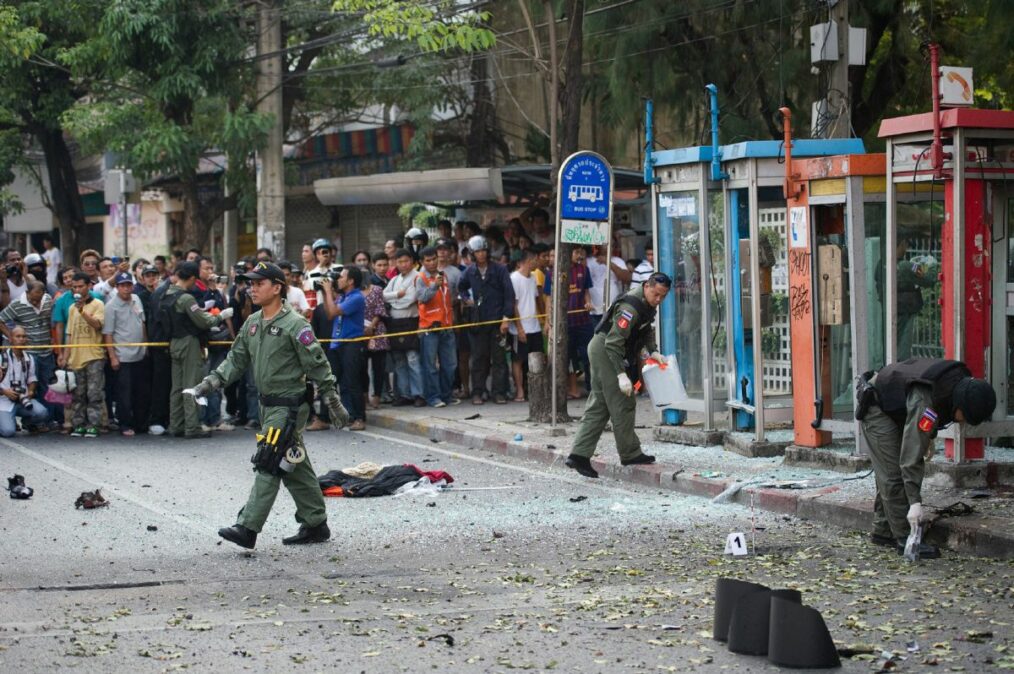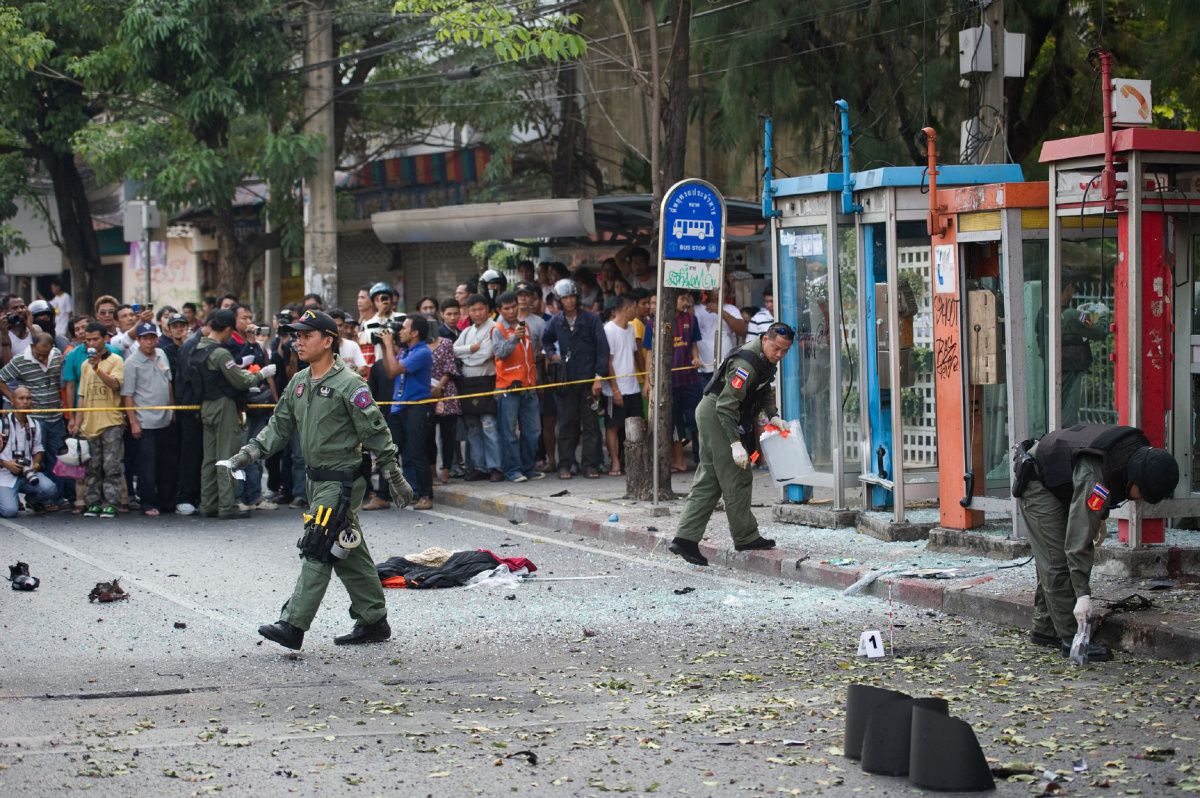
Thailand Proposal

Thai bomb squad officials inspect the site of an explosion in Bangkok Feb. 14, 2012. Three minor blasts rattled the Thai capital Bangkok, leaving a foreigner seriously wounded when a grenade he was suspected of carrying exploded, police said. (NICOLAS ASFOURI / AFP)
The Thai government has employed multiple methods to combat the rising insurgency in Southern Thailand.
One includes a plan proposed by the National Reconciliation Commission (NRC) in March 2005. This article discusses the long-term solutions embedded in the work of the NRC which were designed to deal with the increase in violence.
Much of the unrest in Southern Thailand has been ascribed to the region’s high density of ethnic and religious minorities. 35% of the population identifies as Muslim and most of these Muslims as Malays. This high concentration of minority individuals creates greater religious and ethnic tension in the region. The tensions are fueled by the spread of extreme Islam in Southeast Asia. As extremist ideology has increased, so too has violence in the region. Since the insurgency’s start in January 2004 more than 6,500 people have lost their lives in southern provinces.
The National Reconciliation Commission, led by Anand Panrayachun, former Prime Minister of Thailand, provided a framework for managing the conflict and curbing the violence in the southern provinces.
The commission was formed under the command of the King and Prime Minister, and was, “…charged with recommending policies, measures, mechanisms conducive to reconciliation and peace in Thai society. Particularly in the three southern border provinces.” The NRC was tasked with putting an end to daily violence. It is to serve as a catalyst for long-term changes around violence reduction. Finally, it is tasked with building institutions and programs for sustainable peace. The NRC suggested immediate and long-term proposals to combat the ongoing conflict.
In the short-term, the NRC mandated government-initiated peace talks with insurgents and advocates for non-military regional groups to maintain peace. The commission proposed three goals for conflict de-escalation. First, find common ground between the Muslim majority and Buddhist minority in southern Thailand, helping these groups live together peacefully as equals. Second, create a common understanding of the majority population in Thailand. Third, create a larger, more harmonious and diverse Thai society.
To achieve these goals, the NRC noted the importance of conversation between the Thai government and militant groups.
The NRC noted it, “…believes it is necessary to engage in dialogue, freely exchanging views with people, both at home and abroad, who may subscribe to ideologies different from that of the state.” In addition to the peace talks, it was suggested that an unarmed peace-keeping unit, known as Shanti Sena, be formed to defuse daily tensions through non-violent means. The mandate of this unit is to, “…prevent existing conflicts from escalating.”
As UN peace-keeping forces have demonstrated, these types of efforts can be effective, but they need sophisticated training and exemplary community relations. The NRC hoped the Shanti Sena would mediate to help re-establish trust between the people and their government. Thus, in the short-term, the NRC advocated for both a political solution and a common security policy.
The long-term proposals accounted for greater post-conflict reconstruction, including five measures from the structure and seven from cultural and economic perspectives.
Lastly, the proposal called for a better understanding of the situation in Southern Thailand. It wants to ensure that all parties understand the insurgency was not a simple rebellion against the government. The civil conflict was complex and rooted in historical injustices regarding religious identity, economic inequality, unequal power, and local governmental corruption. Southern Thailand was in a state of civil conflict for a long time.
There were obvious abuses of power in the region. In order to combat this, the NRC suggested, “…a transfer [of] state officials out of the area against whom abuse of authority complaints had been issued, an investigation guided by facts, and transparent legal action taken against such officials when appropriate.” The NRC also proposed these transferred officers never again be deployed to southern provinces.
The NRC report makes clear that dealing with the crisis would require political will and input from all parties. However, it does not have realistic expectations or frameworks regarding how this might be accomplished.
This may stem from the composition and activity of the NRC. Unlike most conflict resolution boards, this group did not seek testimony beyond the 50 member commission. The commission was comprised of a cross-section of individuals including Muslim leaders and civil society agents both from within and outside the region. However, testimony from individual citizens was not sought. This is in contrast to similar commissions in South Africa and El Salvador. Finally, in other regions, such commissions were effective in post-conflict times, not during conflicts.
